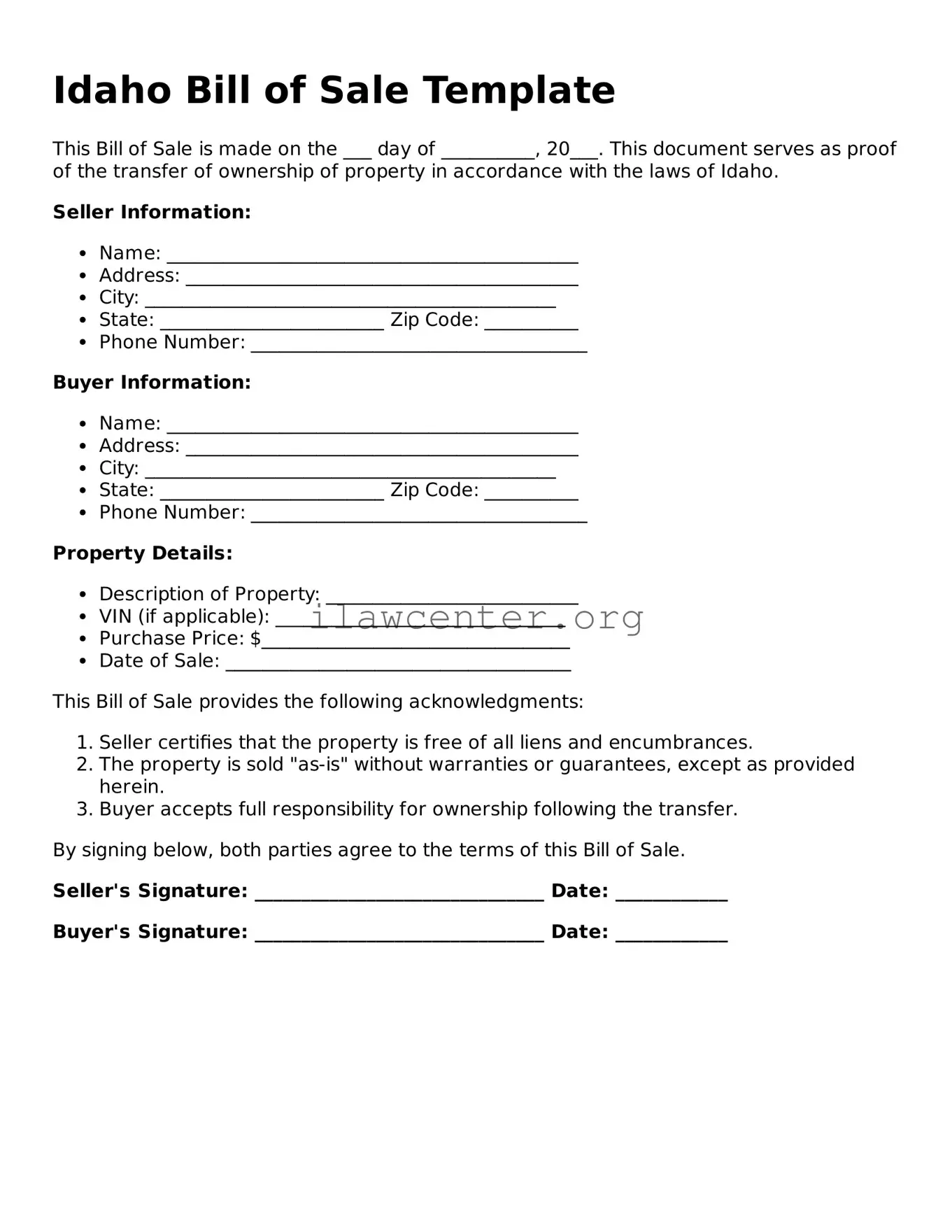Filling out the Idaho Bill of Sale form requires attention to detail. Many individuals make mistakes that can lead to confusion or disputes later on. One common mistake is forgetting to include the date of the transaction. Without a clear date, it may be challenging to establish when the sale occurred, which can complicate ownership disputes or tax implications.
Another frequent error is providing incomplete information about the seller or buyer. It's essential to include full names, addresses, and contact information. Omitting any of these details can create difficulties in future communications or if any issues arise with the sale.
People also often overlook the necessity of describing the item being sold accurately. For vehicles, for instance, failing to include vital details like the Vehicle Identification Number (VIN) can lead to complications in the transfer of ownership. An incomplete description may render the Bill of Sale ineffective.
Adding the purchase price is critical, yet some individuals forget this important element. Not specifying a price can raise questions about the legitimacy of the sale and may complicate tax-related issues. Always ensure the stated amount reflects the agreed-upon price.
Another common mistake is not signing the document. Both parties must sign the Bill of Sale for it to be legally valid. If one party fails to sign, it does not hold up in a legal context, which means the agreement could fall apart when challenged.
Using outdated forms is another pitfall. Laws change, and so do the forms required to document transactions properly. It is important to ensure you are using the latest version of the Idaho Bill of Sale form to avoid any legal complications.
Some individuals may neglect to keep copies of the completed Bill of Sale. It’s crucial to retain this document for future reference, as it serves as proof of the transaction and can be necessary in case of any disputes between the buyer and seller.
People may also rush through the process, which can lead to sloppy handwriting or unclear information. Take the time to write legibly and review each entry for accuracy. Clarity is key to ensuring that both parties understand the agreement.
Misunderstanding the need for notarization is another frequent issue. Some believe that notarizing a Bill of Sale is essential, while it is not always required in Idaho. Knowing when notarization is necessary can help streamline the process.
Finally, failing to provide witnesses can be a mistake in certain transactions. While not always required, having witnesses can provide additional credibility to the sale. It’s wise to consult with a knowledgeable individual about the specific needs for your transaction.
